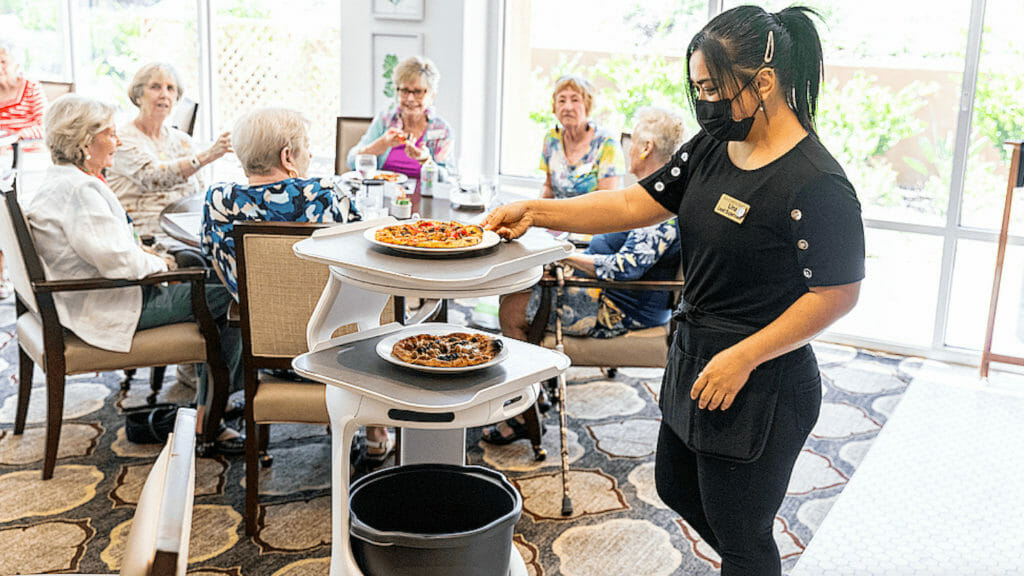
Faster service, improved employee safety and well-being, and enhanced employee recruitment, retention and morale were among the benefits realized in a 90-day pilot project testing the use of robot servers in senior living community dining rooms, according to a new white paper.
The results come at a time when long-term care employers continue to struggle with hiring and keeping workers. The research also revealed benefits for residents as well.
The publication, issued by the Front Porch Center for Innovation and Wellbeing, shares ways in which the robots enhanced dining operations during testing at two Front Porch communities in California: San Francisco Towers in San Francisco and Casa de Mañana in La Jolla.
More than 65% of residents said that the robots improved their overall dining experience, and 51.2% believed that the robots allowed servers to spend more quality time with diners.
Further, 51.3% of servers “agreed” or “strongly agreed” that they were excited about the robots by the end of the pilot, an increase from 40% beforehand. And 58% of servers said that the robots allowed them to spend more quality time with residents, up from 48% before the pilot.
“One of the more important findings was that using the robots allowed more quality time for residents and staff to connect, thereby boosting overall satisfaction for everyone,” FPCIW Vice President Davis Park said in a statement.
The Servi robots used in the study, which were developed by Bear Robotics, are equipped with artificial intelligence software that features spatial mapping and self-driving. They can autonomously carry food, drinks and dirty dishes between the kitchen and resident dining areas, automatically adjusting their paths to avoid obstacles.
Each robot can carry five to seven entrees, depending on plate size. Adjustable speeds allow for the robot to be custom-fitted for individual locations. The 41-inch-tall by 17-inch-wide robots can work in hosting, patrol and party modes.
“The robots are intended not to replace but to work alongside humans to help address staffing challenges first experienced during the COVID-19 pandemic and simultaneously to elevate the customer experience,” FPCIW President Kari Olson said. “We’re pleased that efforts to continue the use of the dining robots beyond the pilot have been supported by the communities, and we look forward to bringing this technology to other Front Porch communities.”
The report can be downloaded for free on the Front Porch website.



